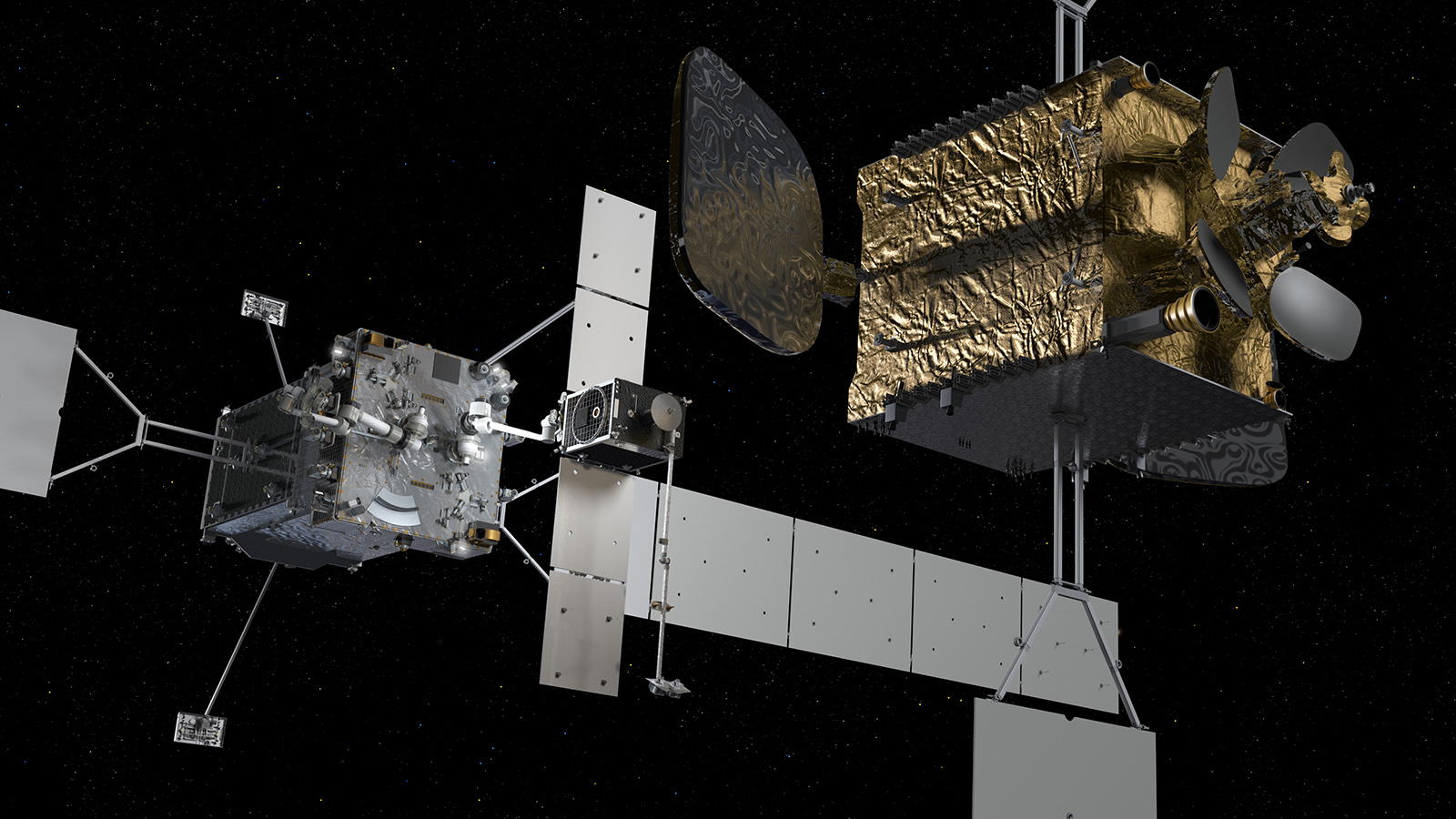Stay Up to Date
Submit your email address to receive the latest industry and Aerospace America news.
The Space Logistics Technical Committee fosters development of integrated space logistics capabilities that enable safe, affordable and routine spacefaring operations.
Technology development of in-space servicing, assembly and manufacturing, or ISAM, increasing concern about space debris and the global enthusiasm for space exploration are fostering a new commercial market for space logistics. This year, multiple market research companies, such as Brainy Insights in India, Allied Market Research of Delaware and Report Ocean in India, estimated the space logistics market size will reach $20 billion in the 2030s.
Government investment in space technology development propelled the growth. In April, NASA formulated and funded the Consortium for Space Mobility and ISAM Capabilities, COSMIC, to foster nationwide collaboration across government, industry, nonprofits and academia. The Aerospace Corp. was selected to operate the group. In March, NASA awarded Redwire of Florida a $5.9 million contract to complete the design of FabLab, a new in-space manufacturing system. In June, NASA entered into a Space Act Agreement with Sierra Space of Colorado for the development of the company’s commercial low-Earth orbit ecosystem, including new space station architectures and in-space logistics and servicing. NASA will provide access to facilities and support for environmental and crew systems testing, tools and software.
In the commercial market, Intelsat purchased two Mission Extension Pods from SpaceLogistics, a satellite-servicing company owned by Northrop Grumman, in April and in June. These propulsion pods are scheduled to be attached to Intelsat communication satellites in geosynchronous orbit in early 2025.
The same market growth trend appeared in Europe. In February, French space services company Exotrail announced that it raised $58 million in a Series B funding round to expand its in-space transportation services. In April, the Italian Space Agency awarded a 235-million-euro contract to a Thales Alenia Space-led consortium to design, develop and build an in-orbit servicing demonstration mission. The contract was funded through the in-orbit economy component of the Italian national covid-19 recovery scheme, which is part of the European Union’s Next Generation EU economic package.
In February, the U.S. Space Force awarded Colorado-based CisLunar Industries, Astroscale U.S. and Colorado State University a $1.7 million Direct-to-Phase II Small Business Innovation Research contract to recycle space debris into metal propulsion. In March, the Space Force awarded a $1.6 million SBIR contract to a team led by Southern California startup Arkisys to demonstrate satellite assembly capability in orbit. In July, the Space Force awarded a $1.7 million Direct-to-Phase-II contract to California-based Orbital Composites, partnering with Axiom Space, Northrop Grumman and Southwest Research Institute, to build and launch the first space factory for kilometer-scale antennas within the next three to five years.
In the realm of moon and Mars transportation, NASA in May selected Blue Origin of Washington as the second lunar lander provider for the Artemis program, awarding a $3.4 billion firm-fixed price contract. In July, DARPA contracted Lockheed Martin to design and build a nuclear-powered rocket, with an in-space flight demonstration scheduled for 2027. The Space Force will provide launch and launch site support for the test.
In academia, NASA’s Office of Technology, Policy and Strategy awarded two teams funds to examine policy opportunities and perform space logistics analysis for commercialization of debris remediation. The lead institutions are Princeton University and the Stevens Institute of Technology, both in New Jersey. Also, as part of the Space University Research Initiative program, the Air Force Office of Scientific Research awarded three new teams contracts for space logistics research and development. Each will receive up to $5 million ($3 million base plus a $2 million option).The lead institutes are Georgia Tech, the University of California, Santa Cruz and Cornell University in New York.
Stay Up to Date
Submit your email address to receive the latest industry and Aerospace America news.




